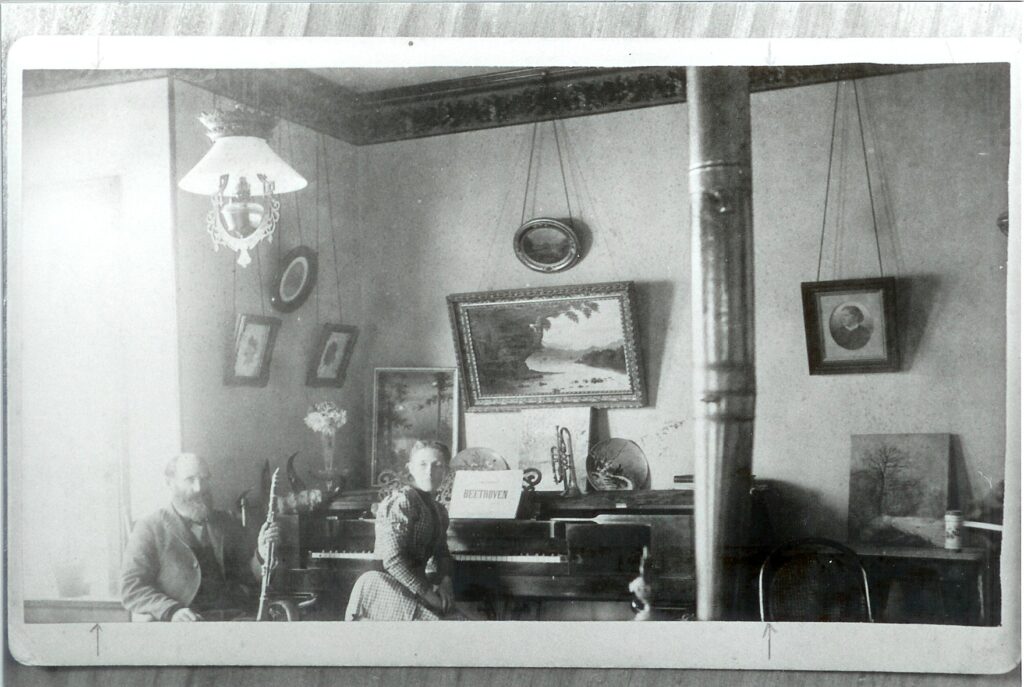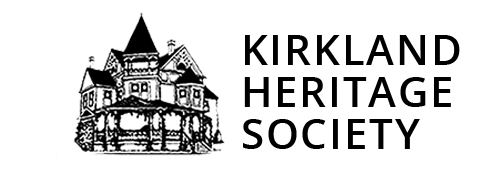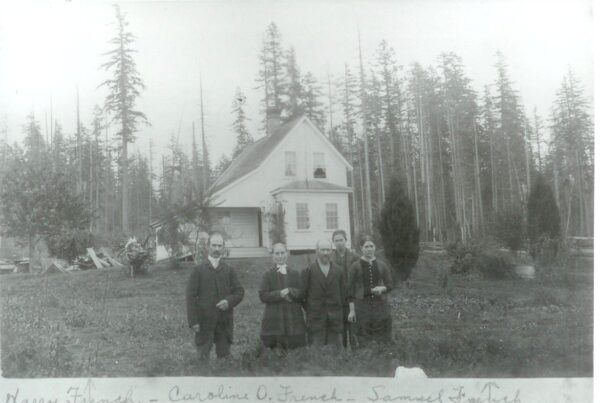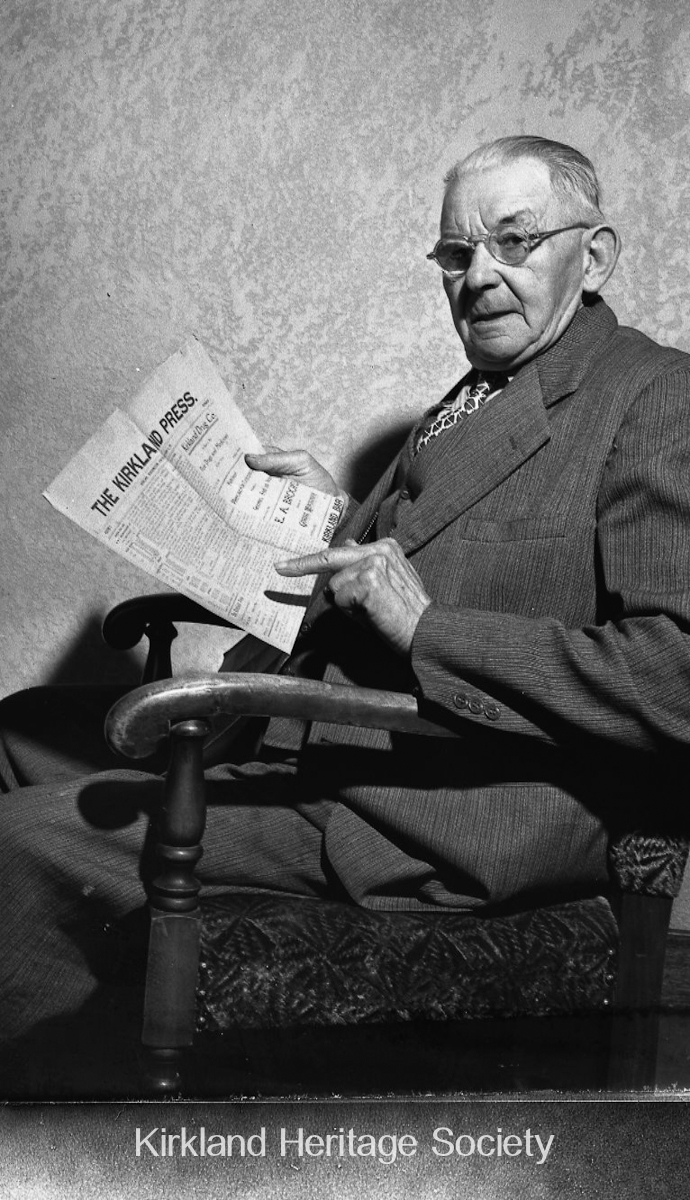
Kirkland’s earliest settlers were a family by the name of Popham, a mother and her two sons, who came here in 1871. They lived for a short time on the land just south of the Standard Oil Co. tanks, but left never to return. Afterwards, the William and Frank Curtis families purchased the land and lived on it for many years.
The settling of Kirkland had begun.
In 1872, the S. F. French family who had journeyed from Maine to California, settled up the coast from Seattle to make their home. French and his son, Harry, took a good look at the virgin land along the shores of Lake Washington and finally chose to settle on land just north of Houghton.
In 1876, on what is now the location of Halverson’s Pharmacy, J. W. DeMott built his house. At that time the lake extended nearly to his house, and what is now Lake St. So., ran only about 100 feet to a bridge which crossing a creek flowing into the lake.
When the lake was lowered nine feet by the building of the Lake Washington ship canal, this street was filled. And in 1877, Andrew Nelson and his four sons claimed land along the* lakeshore from Market St. to Juanita bay. From this time on to the present day, land between Kirkland and Redmond was taken up rapidly.
An interesting note is that many early settlers filed claims on land in the Redmond district , even though lands on the lake were still open to filing. These wise pioneers recognized the rich valley lands would make ideal farms. In those days, there was no road to Redmond, and it was necessary to go by boat up the Sammamish Slough’ to get there. The “Squak,” an early Lake Washington steamer, plied Lake waters from 1884 to 1890, traveling every week from Madison Point to Kirkland and past Whiskeye Point (now Champagne Point). The Squak, like a nautical Toonerville Trolley, made every stop along the shore — Denny Park, Peterson’s Camp, Kenmore, Bothell, Hollywood Boren’s place, Woodinville, Redmond, Monahan, finally ending at Fibbeh, Landing, Squak Post Office, Lake Sammamish. The Squak was a double-engined barge with twin screws and when those two screws were run in opposition “she whorled around the Slough’s bends.”



